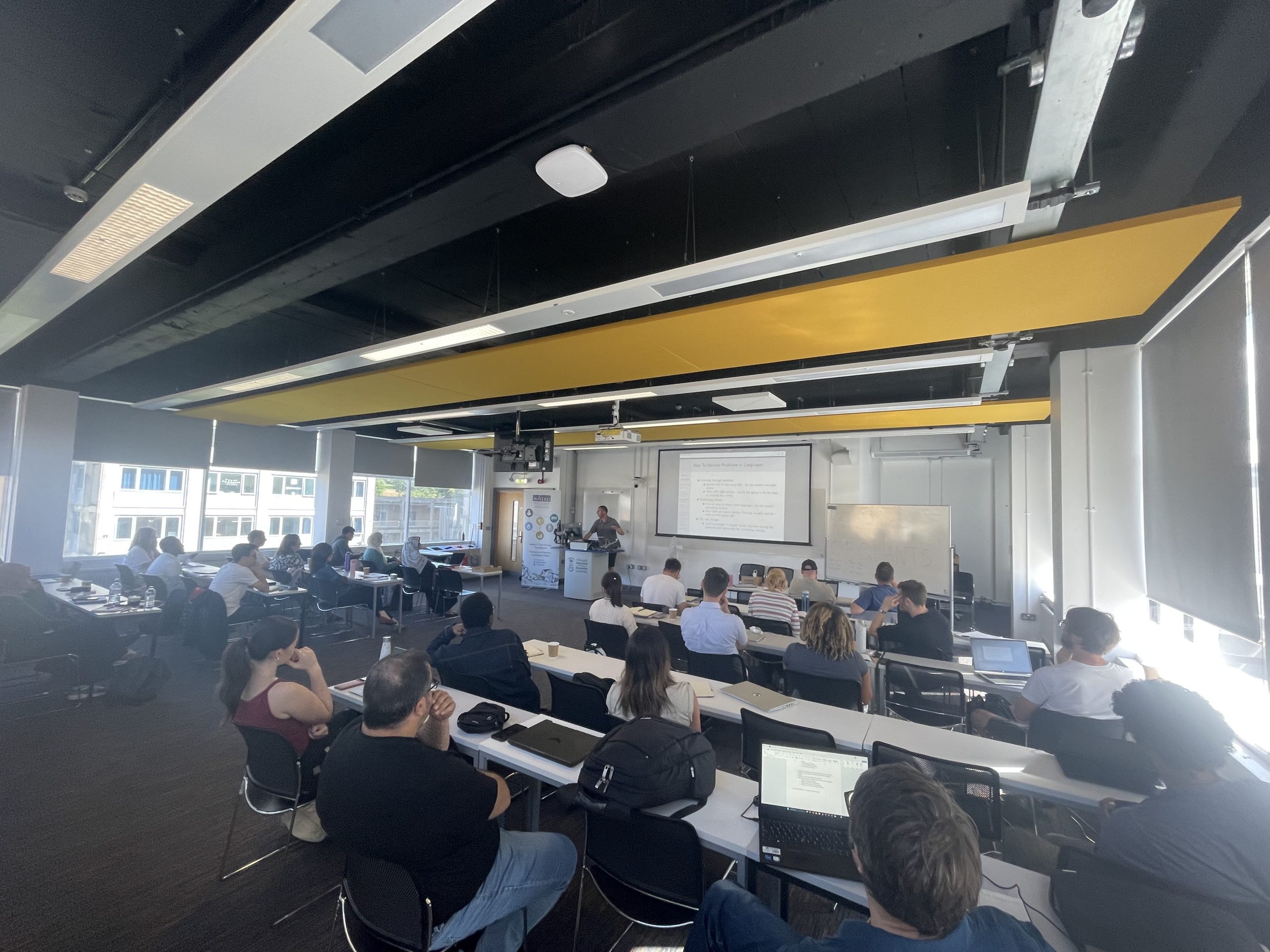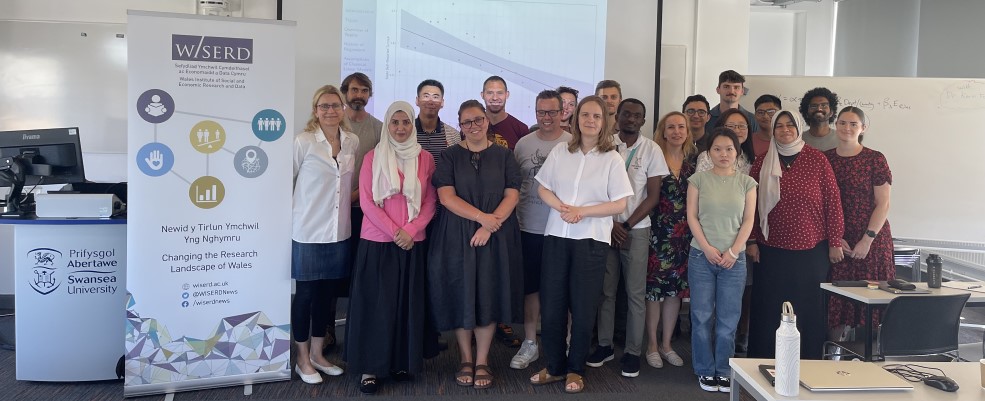From 8 to 11 July 2025, the WISERD Politics and Governance Research Network held a four-day Quantitative Methods Bootcamp at Swansea University.
This intensive course was led by Dr Kevin Fahey, Assistant Professor in Politics at Nottingham University and included lectures, practical demonstrations, hands-on practice and group work. Its aim was to provide essential training for researchers at any career stage interested in learning or developing skills in the fundamentals of quantitative methods
The course covered methods as a language, an introduction to R, Quarto and how to write reproducible code, notation, algebra, and key statistical terms, Central Limit Theorem, bivariate hypothesis testing, linear models and their assumptions, the goals of inference, predictive modelling, data visualisation and much more.

Dr Matthew Wall, WISERD co-director at Swansea University participated in the workshop as an experienced quantitative researcher. He said: “This workshop showed how a focus on research methods can allow us to cross disciplinary boundaries. It brought cutting edge training to researchers at various career levels spanning political science, education, sociology, philosophy, economics, and criminology.
“As well as building our foundational grasp of statistical inference, we learned powerful tools and techniques for social research data analysis and visualisation. It was a great chance for all involved to upskill, broaden their research networks, and to seed research collaborations that can contribute to social change within and beyond Wales by influencing the development of policy and practice.”
WISERD Postdoctoral Researcher, Louis Bromfield, who also attended the course and was involved in the organisation of the event, said: “The workshop, delivered expertly by Dr Fahey, was intense but highly enjoyable from start to finish. Attendees had the opportunity to learn about various quantitative techniques and methods, and the underlying math, but also how to speak quantitative methods as a language, how to visualise and display findings, and what to be on the lookout for when reading quantitative papers.
“We are grateful for the invaluable feedback we have received from our participants, which will help to improve our future network activities”
You can discover more about the activities of our networks and the other types of WISERD events we offer on our website.

